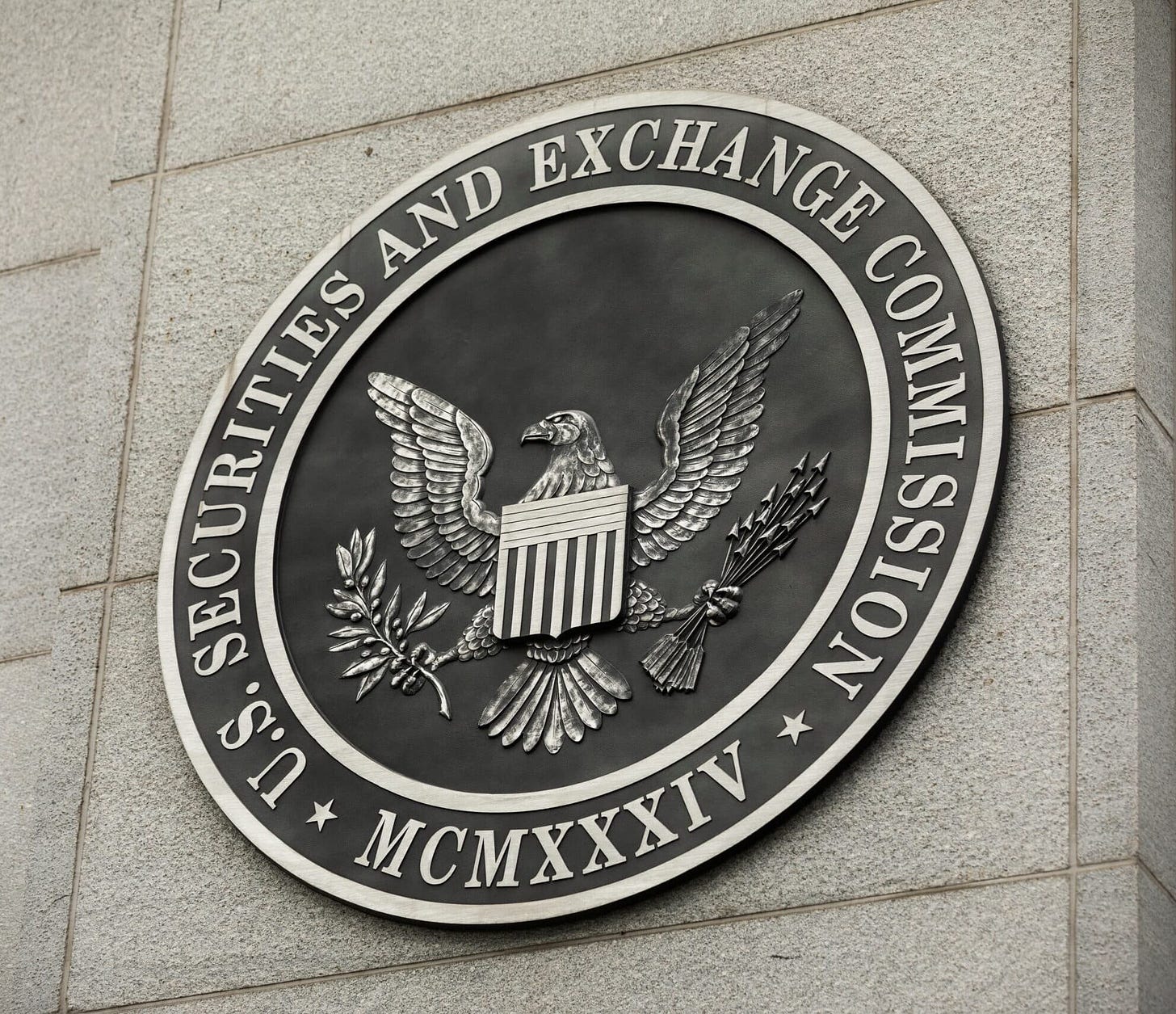Is ‘Uptober’ Canceled? 🥶
Weekly News Recap: ⚖️ SEC appeals Ripple case, 📈 Bitwise registers XRP ETF, 🔐 North Korea infiltrates crypto, 🏛️ CFTC pushes tokenized shares, and more!
You are reading the Unchained Weekly newsletter, where we cover all the major news in the crypto space, providing insights into the market's latest trends, regulatory shifts, and technological advancements. Stay informed with your no-hype resource for all things crypto.
Bitcoin’s Price Dropped After Iran’s Attack on Israel. Is ‘Uptober’ Canceled?
With geopolitical tensions rising in the Middle East, how does Bitcoin react to global risk events? And is ‘Uptober’ still on the table?
October started with hopes for “Uptober” in the Bitcoin community, a positive price trajectory in October, since historically, bitcoin has performed well this month. But things took a turn when geopolitical tensions in the Middle East escalated, raising concerns about how that could affect bitcoin’s price this month.
In this episode, André Dragosch, European Head of Research at Bitwise, talks about how bitcoin typically responds to geopolitical shocks, whether this could present a buying opportunity, and how major events like the U.S. elections might shape bitcoin’s future.
Listen to the episode on Apple Podcasts, Spotify, Pods, Fountain, Podcast Addict, Pocket Casts, Amazon Music, or on your favorite podcast platform.
Weekly News Recap
SEC Appeals Ripple Case
The U.S. Securities and Exchange Commission (SEC) has filed an appeal against the August 7 ruling in its case against Ripple, claiming the decision conflicts with decades of Supreme Court precedent. The SEC's spokesperson said that the agency believes the district court's judgment misinterprets securities law, and that it’s prepared to make its case to the Second Circuit Court of Appeals.
In the original ruling, Ripple was fined $125 million, far less than the $2 billion initially sought by the SEC.
Bitwise Registers XRP ETF
Just a day before the SEC announced its appeal in the Ripple case, asset manager Bitwise filed for an XRP-focused exchange-traded fund (ETF) in Delaware. On September 30, Bitwise registered a trust named "Bitwise XRP ETF" with the state's Division of Corporations, marking an important first step toward launching the fund.
Although this filing is not a guarantee of SEC approval, it indicates Bitwise’s intent to offer a spot XRP ETF, which has never been approved before. The SEC has been embroiled in a legal battle with Ripple over whether XRP qualifies as an unregistered security, meaning this new ETF proposal could face regulatory challenges.
North Korea's Infiltration of the Crypto Industry Exposed
A recent investigative report by CoinDesk has revealed that over a dozen blockchain companies inadvertently hired IT workers from North Korea, exposing themselves to significant cybersecurity and legal risks. Using fake IDs and resumes, these workers managed to pass interviews and reference checks, and infiltrate reputable crypto projects such as Fantom, Sushi, Yearn Finance, and Cosmos Hub.
One of the more striking findings is that North Korean IT workers not only performed typical job functions but, in some cases, also funneled earnings back to Pyongyang, potentially funding North Korea's nuclear weapons program. According to a 2024 United Nations report, these IT workers generate up to $600 million annually for the regime. CoinDesk’s investigation also linked some of these workers to crypto hacks, including a $3 million attack on the Sushi protocol. As one blockchain developer noted, "Everyone is struggling to filter out these people," underscoring the widespread nature of the scheme.

CFTC Subcommittee Pushes Forward Recommendations on Tokenized Shares
A subcommittee of the U.S. Commodity Futures Trading Commission (CFTC) has advanced recommendations that could allow firms like BlackRock and Franklin Templeton to use tokenized shares of their money-market funds as collateral in trading, according to Bloomberg. The recommendations, which involve the use of distributed ledger technology for holding and transferring non-cash collateral, have now been passed to the full committee for further review and a vote later this year.
If approved, the guidelines could bring tokenized assets closer to mainstream use in the financial system, allowing businesses to pledge tokenized shares for capital efficiencies. BlackRock’s BUIDL token, which recently became the largest tokenized Treasury fund, is already being accepted as collateral by some crypto prime brokers such as FalconX.

EigenLayer's EIGEN Token Unlocks for Trading
EigenLayer’s native token, EIGEN, officially became transferable on Monday night, marking a much-awaited event for the Ethereum-based restaking protocol. Although the token was airdropped months ago, users had been unable to trade or sell it until now. Following its debut, the token quickly gained momentum, rising to a price of $4.32 and a fully diluted valuation of $7.2 billion, according to CoinMarketCap. However, it went down dramatically on Wednesday, as the broader markets stumbled.
This unlock allows EIGEN to be traded, transferred, and staked, opening the door for developers to build Actively Validated Services (AVS) on the protocol. As of now, 60 AVS projects are reportedly in development, aiming to leverage EIGEN staking to drive decentralized services.
However, the token's launch wasn’t without controversy. Critics raised concerns over the lack of transparency regarding early investors being allowed to stake locked tokens and earn rewards. This practice was not initially disclosed, causing confusion about the actual circulating supply. In response, EigenLayer updated its documentation and reassured users that future rewards would be balanced between investors and general stakers.
FTX Bankruptcy Plan Faces Criticism Over Shareholder Payouts
The FTX bankruptcy estate recently revealed plans to set aside up to $230 million, or 18% of recovered assets, for preferred shareholders, sparking backlash from creditors. The announcement came after the deadline for creditors to vote on the reorganization plan, leaving many frustrated by the last-minute disclosure. Preferred shareholders, including major investors such as Sequoia Capital, Temasek, and Kevin O’Leary, stand to benefit, despite usually being lower in the priority of claims during a bankruptcy.
Earlier, FTX creditors had overwhelmingly supported a reorganization plan that promised to return 118% of claims in cash, based on asset values at the time of the bankruptcy in November 2022. However, some creditors argue they are still at a disadvantage given that many crypto assets have appreciated so significantly since that time. The plan is set for a court hearing on October 7, but recent rumors about repayments starting earlier than that contributed to a surge in the value of the FTT token over the weekend.
World Liberty Financial Launches KYC
World Liberty Financial, a crypto project backed by Donald Trump, began accepting Know Your Customer (KYC) verifications on Monday. The KYC process, required to ensure compliance with anti-money laundering regulations, restricts access to information and participation in the project to pre-qualified individuals, particularly accredited investors in the U.S. The project aims to offer a non-transferable governance token called WLFI, which was first announced during a September 16 launch event.
By Tuesday, World Liberty Financial reported that "thousands" had signed up for the whitelist, with the project describing the response as a "massive success." However, due to U.S. regulations, participation is limited for many investors. The project, promoted by Eric Trump and Donald Trump Jr., has sparked mixed reactions, with some critics claiming the initiative does more harm than good for the industry.

SEC Enforcement Director Grewal Steps Down
Gurbir Grewal, the SEC’s director of enforcement, will step down from his role on October 11, 2024. Grewal, who has been with the SEC since 2021, led the agency's efforts in over 100 crypto-related enforcement actions, including high-profile cases against major cryptocurrency trading platforms. His tenure also saw the SEC significantly increasing the size of its crypto assets and cyber unit.
Sanjay Wadhwa, the current deputy director of enforcement, will take over as acting director following Grewal’s departure. In a press release, SEC Chair Gary Gensler praised Grewal’s leadership, stating that he acted "without fear or favor" in enforcing securities laws and protecting investors.
Commenting on the sudden departure, Jake Chervinsky, Chief Legal Officer at Variant Fund, tweeted, "It's not normal for an SEC Enforcement Director to disappear like this... Perhaps the inevitable end to a campaign of unlawful harassment and misrepresentation resulting in many embarrassing defeats in court."
Binance Founder CZ Released
Changpeng “CZ” Zhao, founder of Binance, was officially released from custody on Friday after serving a four-month sentence related to violations of the Bank Secrecy Act. Zhao, who had been in a halfway house since August, returned to the crypto world ahead of his scheduled release date.
Zhao celebrated his newfound freedom with a simple "gm" tweet, sparking a flood of lighthearted responses from the crypto community.
Mango Markets to Destroy MNGO Tokens
Mango Markets has agreed to destroy its MNGO tokens as part of a settlement with the SEC, which accused the platform of offering unregistered securities and operating as an unregistered broker. Mango DAO, Mango Labs, and Blockworks Foundation will also request the removal of MNGO tokens from trading platforms and pay $700,000 in penalties.
This settlement follows Mango DAO’s recent vote to accept the SEC’s proposal, and the entities did not admit or deny the charges. The SEC emphasized that the label "DAO" does not exempt projects from registration requirements.
Also this week, a U.S. judge ruled in favor of the SEC against Rivetz, a crypto wallet firm, for selling unregistered securities, moving the case closer to a final judgment on penalties.
FUN BITS: Diddy and SBF: Jailhouse Buddies Share More Than a Cell
Talk about a plot twist! Hip-hop mogul Sean “Diddy” Combs isn’t just sharing a jail cell with crypto villain Sam Bankman-Fried—he’s also borrowing his lawyer! After being hit with racketeering and sex trafficking charges, Diddy has teamed up with SBF’s legal defense ace, Alexandra Shapiro, to appeal his imprisonment, according to court filings. The two cellmates are now reportedly living in a "barrack-style" space and appear to now have more in common than just bad press. X is having a field day with the news, with jokes flying about Diddy and SBF cooking up a new venture together from behind bars—perhaps a prison rap album funded by crypto?










